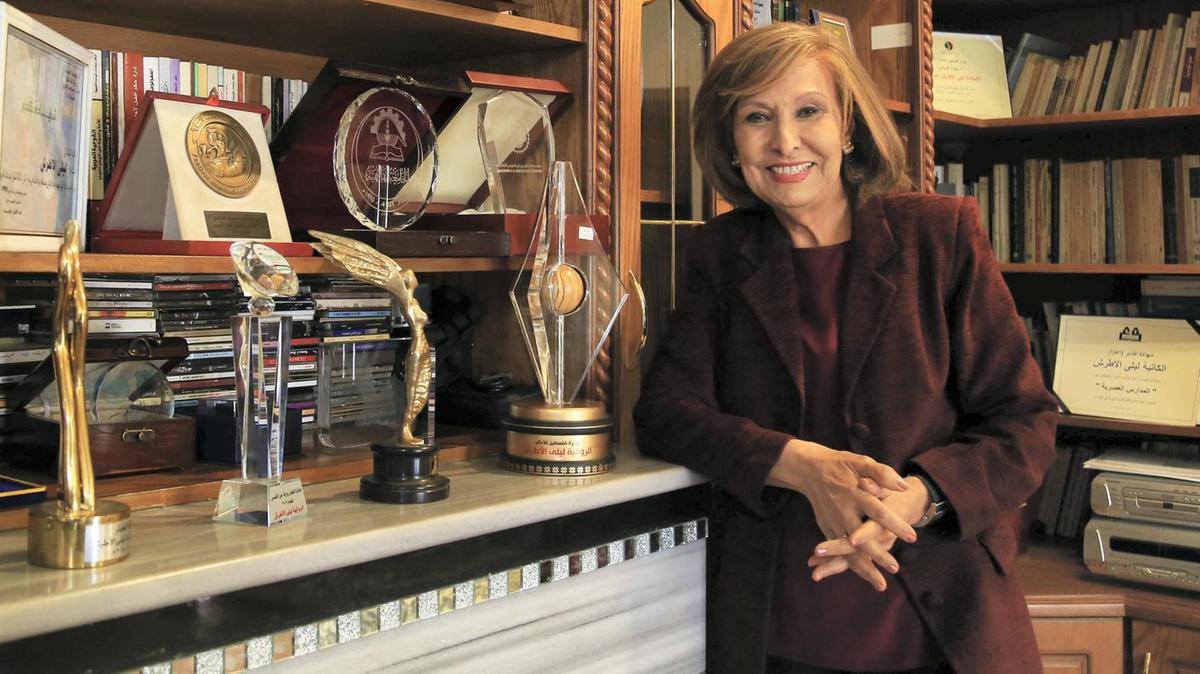
A view from Laila Al-Atrash, a Palestinian-Jordanian novelist, who talks about her writing and why she’s worried about freedom of expression in the Arab world.
In the mid-1960s a young aspiring writer filed an explosive story on the crime of so-called honour killings in Jordan and Palestine. Long before the instant fame of social media, Laila Al-Atrash made a name for herself with her robust and challenging writing. Decades later, sitting in her Amman home, she smiles ruefully and says: “It seems I threw a stone in a pool.”
The ripples have been spreading ever since. Al-Atrash – a writer, journalist and free-speech advocate – occupies a peculiar space in international literature. Her 10 novels, three plays, short story collections and reporting are studied, quoted and analysed in universities worldwide. She appears in many PhD theses, and even the US military has recognised the value of her insights into Arab society, asking her to brief its troops.
‘I am a ‘feminist writer’ but in my own way’
But much of Al-Atrash’s work remains untranslated into English. One exception is her 1990 novel, A Woman of Five Seasons. The story of a young Palestinian wife struggling to maintain her personal independence while living in a fictional Gulf country, it was described as “sharp, amusing and memorable” by one critic.
Women in the Arab world are at the core of much of Al-Atrash’s writing. Her new novel, A Woman Unlike Herself, follows the trials of an Afghan exile from a wealthy family, sick with cancer, who is married to a Palestinian in Amman. It is, Al-Atrash tells The National, “about fear of death, fear of leaving the country, fear of refugees, fear of sickness”.
It is perhaps no coincidence that many of the women in Al-Atrash’s writing are refugees or exiles. Born in the Palestinian town of Beit Sahour, east of Bethlehem, Al-Atrash is a graduate of Beirut Arab University and holds degrees in literature and law as well as a diploma in French. Her journalism, writing and activism have taken her across the Middle East and now, from Amman (where she lives with the sociologist, critic and translator Fayiz Suyyagh, a 2007 Sheikh Zayed Book Award winner) – she continues to explore Arab society through her writing.
Her willingness to confront taboos has led to her being branded a feminist writer, a label she embraces – with a caveat. “I am a ‘feminist writer’ but in my own way – it’s a social feminism,” she says. “From the beginning, women were very important in my writing, but I don’t divide women from men. Men need liberating more than women. In the Arab world, we need it because our men, unfortunately, are not liberated enough.”
It is the struggle between men and women within their societies that colours much of Al-Atrash’s writing. Many of her characters – male and female alike – seek liberation, whether it be from social restrictions, poverty, familial obligations or from the circumstances of their birth. In A Woman of Five Seasons, the female protagonist, Nadia, feels alienated from other Palestinian and Arab women in the Gulf. Her marriage to Ihsan, a Palestinian man who uses life in the Gulf to change his identity and climb the social ladder, founders and he eventually forbids Nadia from reading. Stifled, she flees to London and begins a new, independent life working in the property industry, finding freedom in this second exile.
….
‘We are suffering from the same problems’
She also balks at pigeonholing Arab women’s work. “I can’t say ‘Arab women’s writing’ because we write on the same subjects that men are writing about. So I hate saying ‘women’s writing’ because we do it due to our circumstances.
“In the Arab world we are suffering from the same problems, men and women. So you will find that we are writing about the same things because our problem is a societal problem.
“Politics are affecting us. Fundamentalists are affecting us. The economic situation is affecting the whole Arab world.”
Politics is never far from the surface of Al-Atrash’s writing and journalism. In 2010’s Desires of That Autumn, set in Amman, Ahmed, a young Palestinian living in a refugee camp, dreams of going home, but creates a fantasy world of wealth and success to impress a girl he is talking to online. When his dreams crumble, and peace in Palestine seems impossible, he becomes depressed and easy prey for the siren song of extremists.
Written by Declan McVeigh
Image: The National
Publication date: December 15, 2018
Learn about about NGOs supporting Arab Women
MENA’s first free click-to-donate platform – you click, we donate




Copyright © 2024 The Olive Tree SAL, all rights reserved. Terms of Use | Privacy Policy